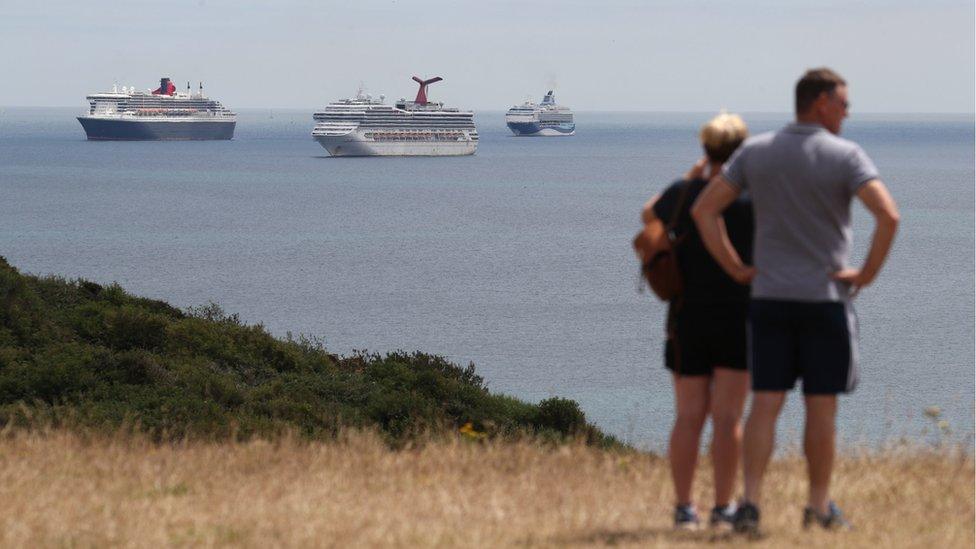Moored cruise ships off Dorset coast 'scarred' seabed
- Published
Underwater images appear to show where an anchor and chains have dragged along the seabed
Cruise ships moored off the Dorset coast caused "extensive scarring" to the seabed, sonar scans have shown.
Some of the world's biggest and best-known cruise vessels anchored off Weymouth and Poole when holiday voyages were halted due to the pandemic.
Dorset Wildlife Trust said its research revealed the impact of vessels' dragging anchors and chains and warned of damage to marine habitats.
Cruise companies have insisted they abide by maritime regulations.
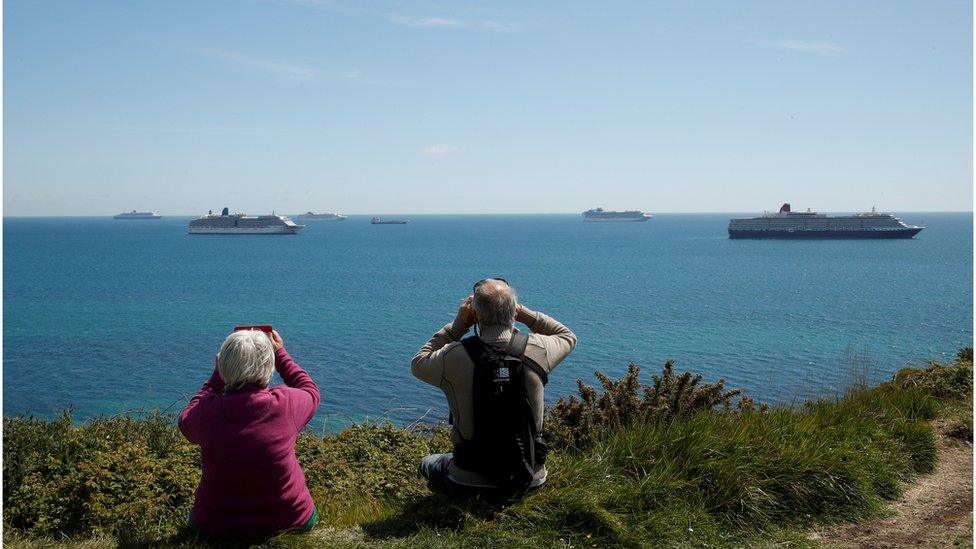
The moored cruise ships became a tourist attraction along the Dorset coast
The cruise ships - many based in Southampton - became a tourist attraction in their own right when they moored off the Dorset coast from March 2020.
Under maritime law ships are allowed to stop and anchor, and Weymouth Bay has a number of designated anchorage areas for commercial vessels.
Dorset Wildlife Trust carried out scans of the seabed earlier this year after a period when more than 70 arrivals and departures of cruise ships were noted.
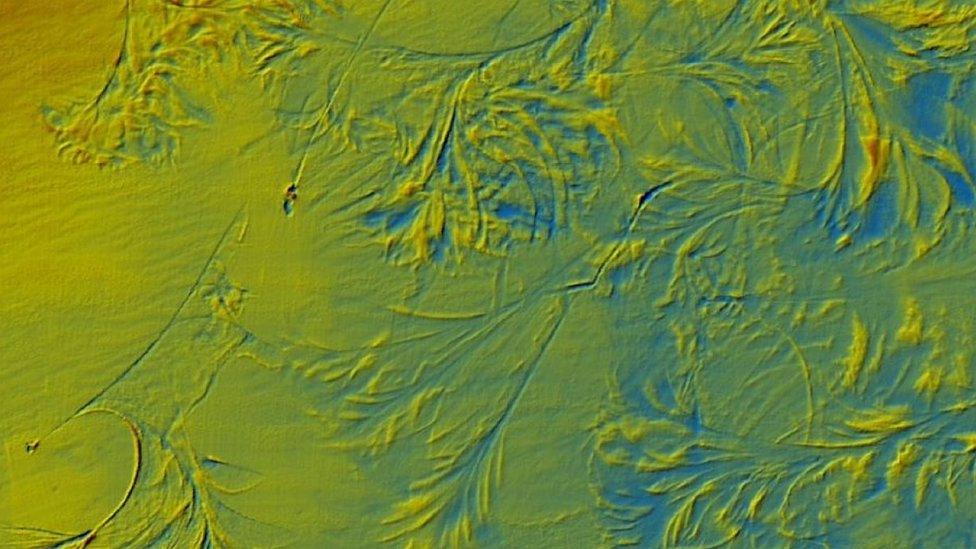
Scans showed "feathering" in the north east of Weymouth Bay caused by ships' chains scraping the seabed
The multibeam sonar scans carried out in Weymouth Bay found "a number of deep grooves, up to 60cm deep and about 5m wide".
It found some damage had been done to the Marine Protection Area near Weymouth where ships are not usually allowed to anchor.
At another location, an "extensive scar radiating from a central anchoring point, covering over six hectares of seabed" was scanned, caused by a ship moving with the tide and currents while at anchor.
The report acknowledged the shutdown of the cruise industry was "unprecedented" but said mooring should not be a "free for all".
The trust warned of "long-lasting impacts on a considerable area of seabed".
"Each time one of these large vessels drops and retrieves an anchor, it is making a noticeable impact on the seabed. The cumulative effect of this on sensitive habitats could be significant," it said.
It called for restrictions on anchoring and for protected habitats to be marked more clearly on navigation charts used by commercial vessels.
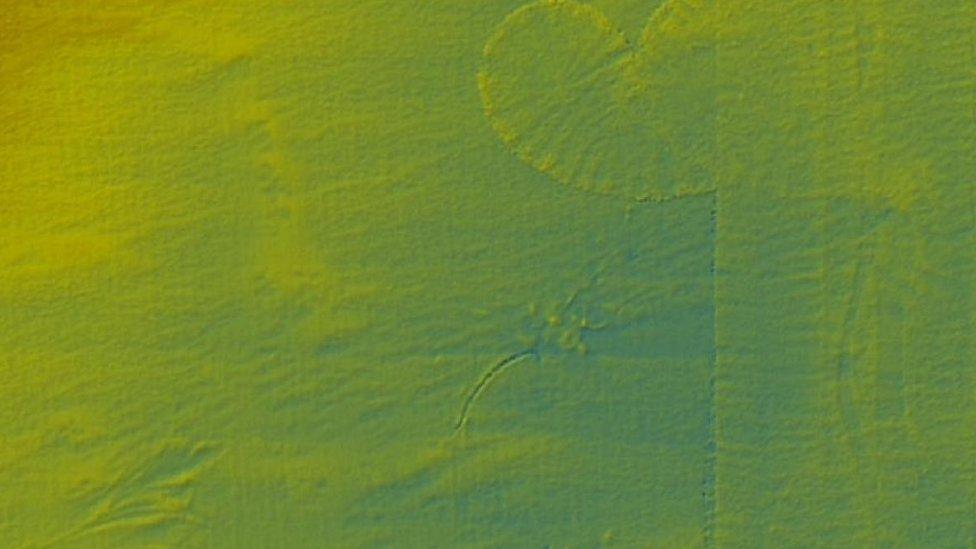
A previous scan shows the same area in 2008
Marine biologist Dr Alice Hall of Bournemouth University also dived on a chalk boulder reef site near Old Harry Rocks where two ships had recently moored. The area of seabed has sensitive features, including Sabellaria spinulosa reefs.
She described the impact as "quite shocking" with a "barren" strip of sand apparently left by a dragging anchor.
"Our seas contain such incredible marine biodiversity and the damage caused to the seabed habitat is very alarming.
"The large numbers of cruise ships anchoring around the UK coasts during the Covid pandemic has caused large scale damage to the seabed habitats, some of which may never fully recover."
She said there was also the possibility that historical shipwreck sites could have been damaged.
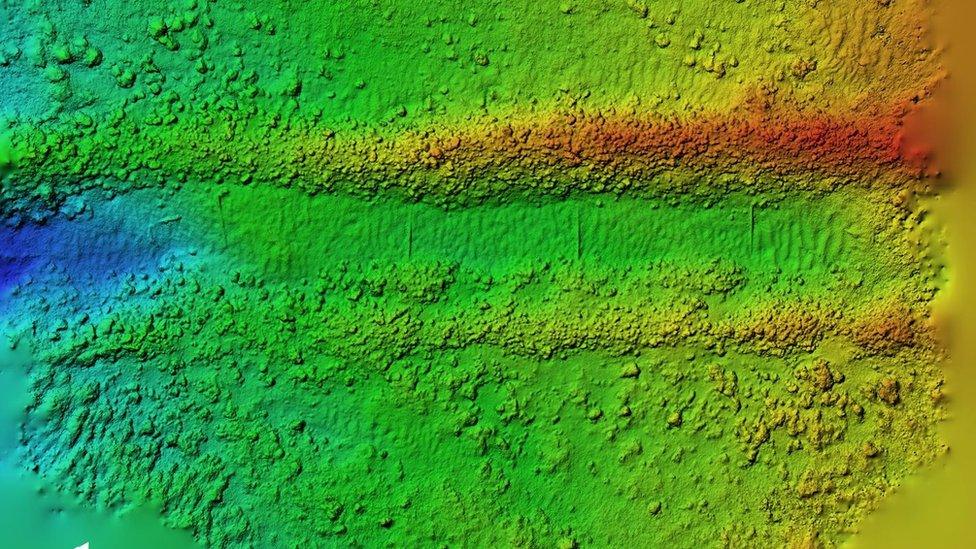
Imaging show the apparent impact of anchor-drag on the seabed near Old Harry Rocks
A spokesperson for TUI and Marella Cruises said: "We strive to comply with marine protection requirements and always evaluate an area prior to anchorage to assess its suitability.
"Information on Marine Protected Areas has been shared across our fleet so everyone onboard has awareness of the sensitivity of the sites."
Carnival which owns Cunard and P&O Cruises said: "Our ships only anchor in areas in which they are permitted and this is monitored by local authorities.
"Throughout our pause in operations we have been liaising with the local authorities and fishermen to minimise the impact on static fishing gear and to stay away from known areas where anchoring is to be avoided."
Norwegian Cruise Line declined to comment.
Natural England which funded Dorset Wildlife Trust's report said: "Most anchoring activity causes no major issues and safe anchorages are found in locations where impacts on the marine environment are minimal."
"Due to the significant increase in large vessels using areas outside of designated port anchorages since the beginning of lockdown, occasionally ships have been anchoring in areas where seabed habitats are fragile or sensitive and unfortunately this can result in long-term damage and the loss of these habitats."

Follow BBC South on Facebook, external, Twitter, external, or Instagram, external. Send your story ideas to south.newsonline@bbc.co.uk, external.
- Published17 June 2021
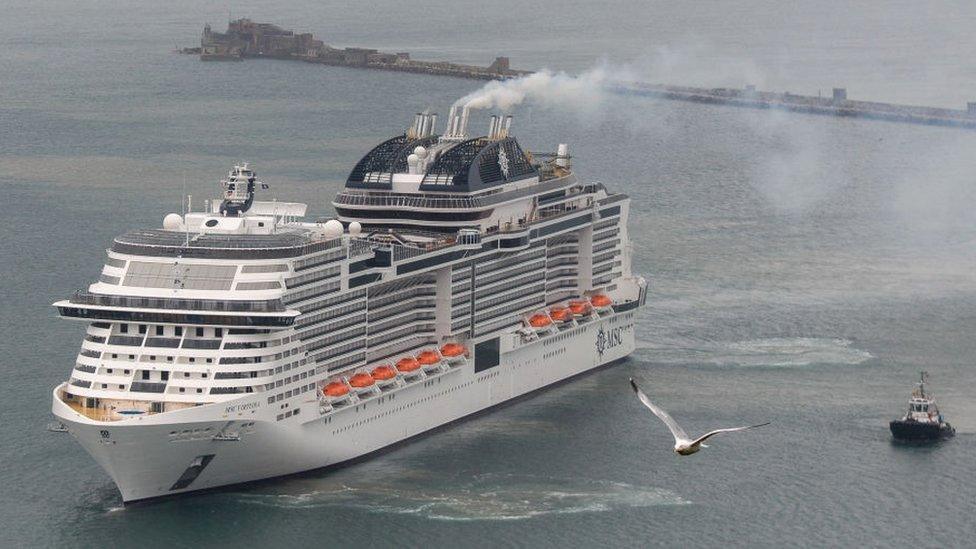
- Published12 August 2020
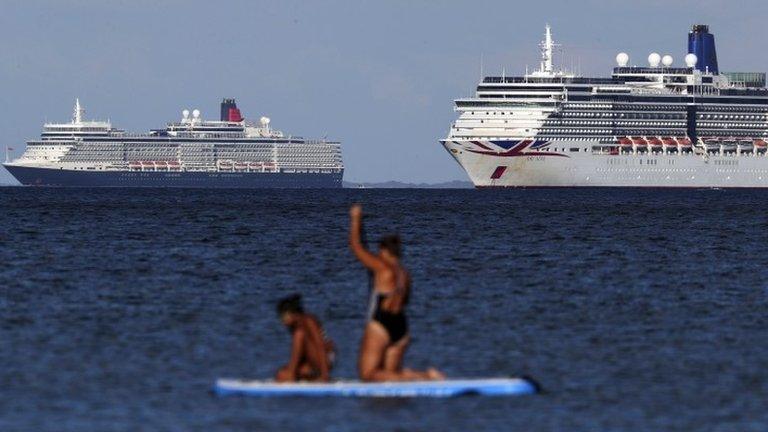
- Published15 December 2020
